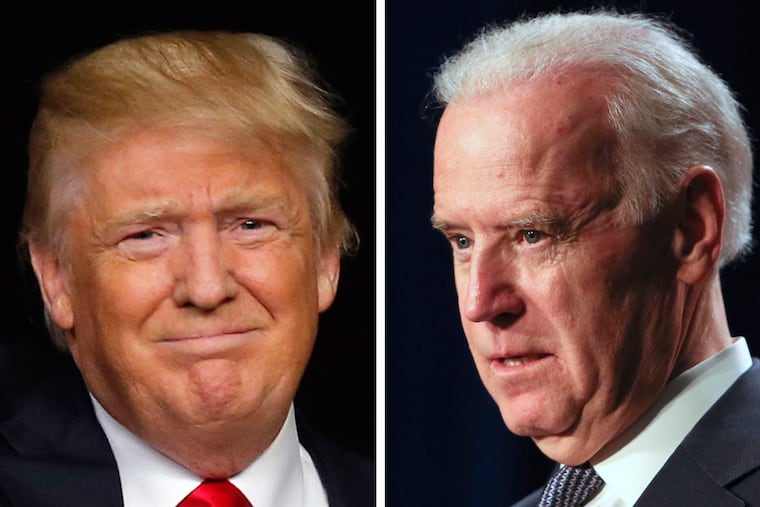Biden’s Charlottesville ad might actually help Trump | Christine Flowers
I have to admit that for the longest time, I bought the story that Trump had made excuses for racists in Charlottesville. Like many people, I was lazy.

Joe Biden did Donald Trump a huge favor when he announced his presidential run with a campaign ad that featured the tragedy of Charlottesville as a central theme. I don’t think he meant to, because the obvious intention was to paint the current occupant of the White House as a racist who thinks some neo-Nazis are good people.
While stirring music plays in the background, the former vice president looks somberly into the camera and says:
“It was there in August of 2017 that you saw Klansmen and white supremacists and neo-Nazis come out in the open. … And they were met by a courageous group of Americans, and a violent clash ensued. And a brave young woman lost her life. And that’s when we heard the words of the president of the United States that stunned the world and shocked the conscience of this nation. He said there were, quote, some very fine people on both sides. … With those words, the president of the United States assigned a moral equivalence between those spreading hate and those with the courage to stand against it.”
It’s a powerful message. What a shame that it’s based on a lie. That’s why Joe did Donald a real solid in focusing our attention on the notorious quote “fine people on both sides,” because we can finally shatter a toxic political myth.
As I’ve noted in the past, language matters. So does context. When Ilhan Omar said that “some people did something,” some of her allies were quick to point out that the words were taken out of context. They said we needed to listen to the entire speech she gave to the Council on American Islamic Relations to understand that she was talking about “bad things” being done to Muslims in the wake of 9/11, not the “bad things” the jihadists did to 3,000 innocent people. Of course, it is still legitimate to believe, as some people (including this writer) do, that her language could still be interpreted as referring to the “bad things” some terrorists did. That’s why precision in language is so very important.
Still, I’m willing to give her the benefit of the doubt on this one since, unlike her “it’s all about the Benjamins, baby” comment, there is a not-bigoted explanation for her words.
But unlike Ilhan Omar, who has a fierce group of supporters who seem to think she’s always misunderstood, there are few people in the media willing to push back against the conventional “wisdom” that Donald Trump is a racist. When Charlottesville happened, the media ran with the story that Trump had created a moral equivalence between the KKK and skinheads on one side, and liberals who opposed them on the other. Aside from the fact that members of both sides (so including those people Joe Biden called “a courageous group of Americans") were throwing canisters of tear gas, no one mentions the fact that President Trump had specifically condemned the racists by name.
Motivated by Biden’s campaign ad, Politifact took a close look at exactly what the president said about Charlottesville, and reproduced the transcript of the news conference where the infamous “fine people on both sides” phrase was first uttered. At one point a reporter says: “The neo-Nazis started this. They showed up in Charlottesville to protest—” Trump interrupts with: “Excuse me, excuse me. … You had some very bad people in that group, but you also had people that were very fine people, on both sides…You had people in that group that were there to protest the taking down of, to them, a very, very important statue and the renaming of a park from Robert E. Lee to another name.”
Later in the transcript Trump says: “I’m not talking about the neo-Nazis and the white nationalists — because they should be condemned totally.” He says it more than once. But somehow, this was barely reported at the time.
I have to admit that for the longest time, I bought the story that Trump had made excuses for racists in Charlottesville. I never bothered to read the transcript, and believed the media reports that he’d made excuses for white supremacy. I was lazy.
Good thing for me and the president that Joe Biden was there to remind us that words matter and that, sometimes, words taken out of context are nothing more than lies.